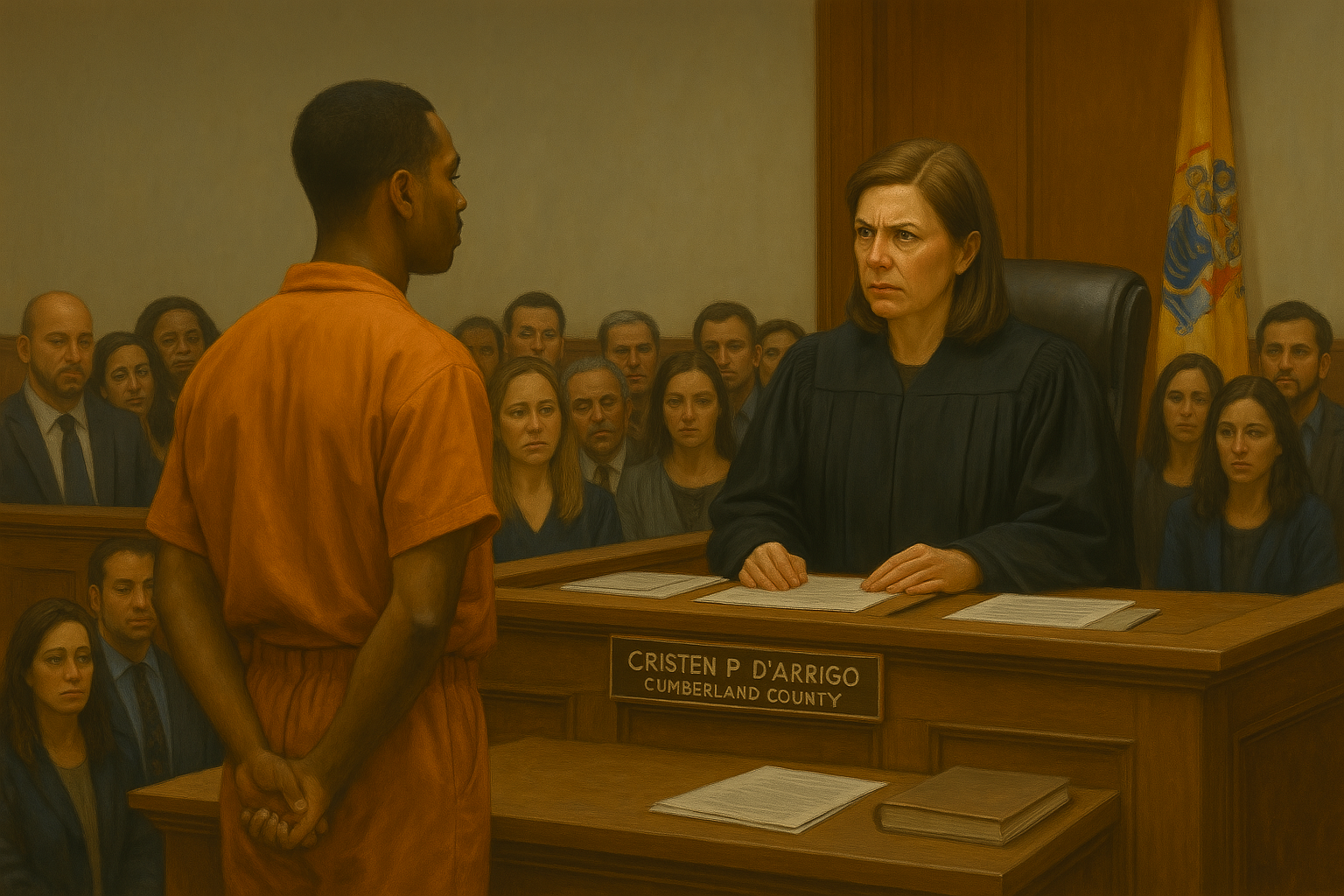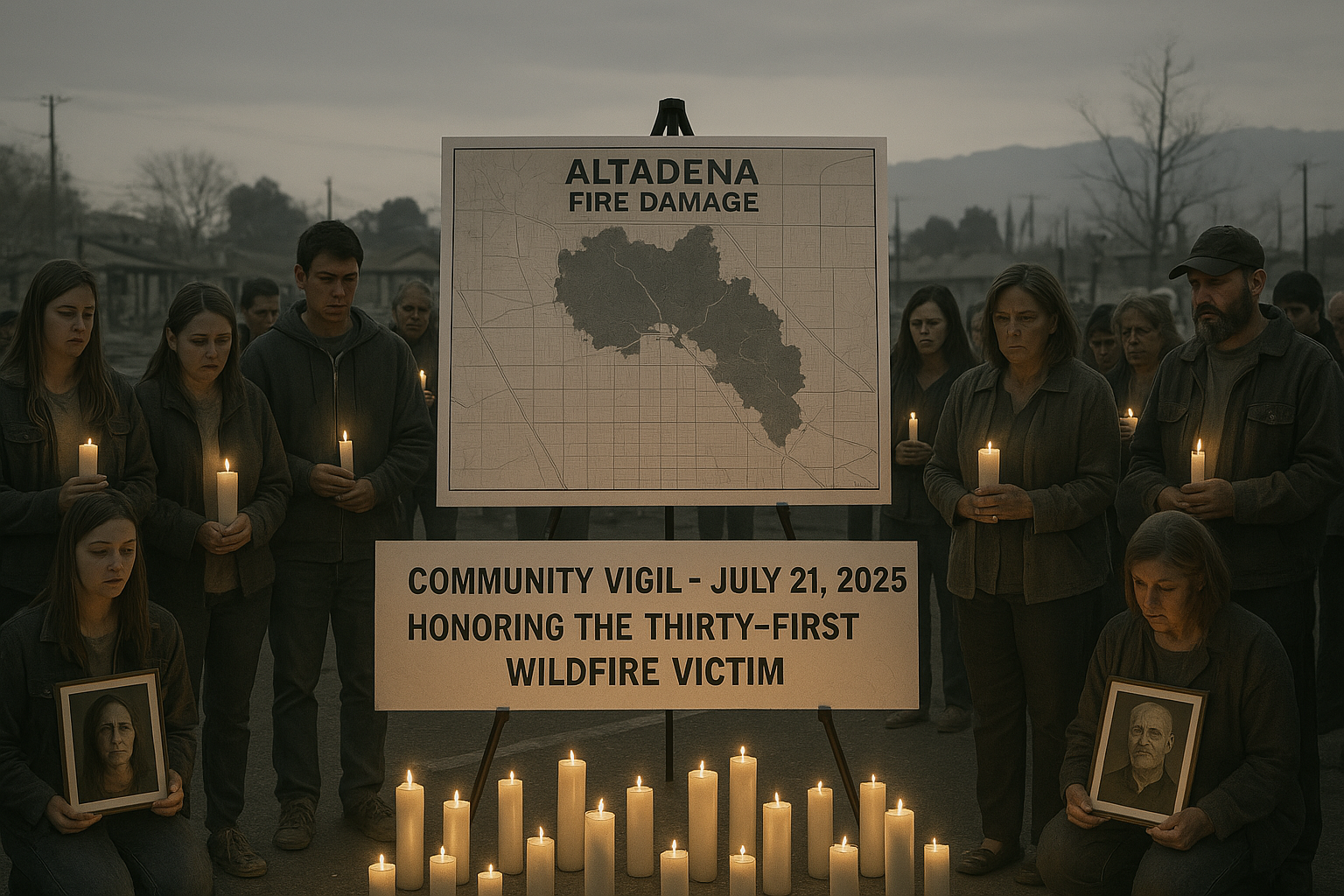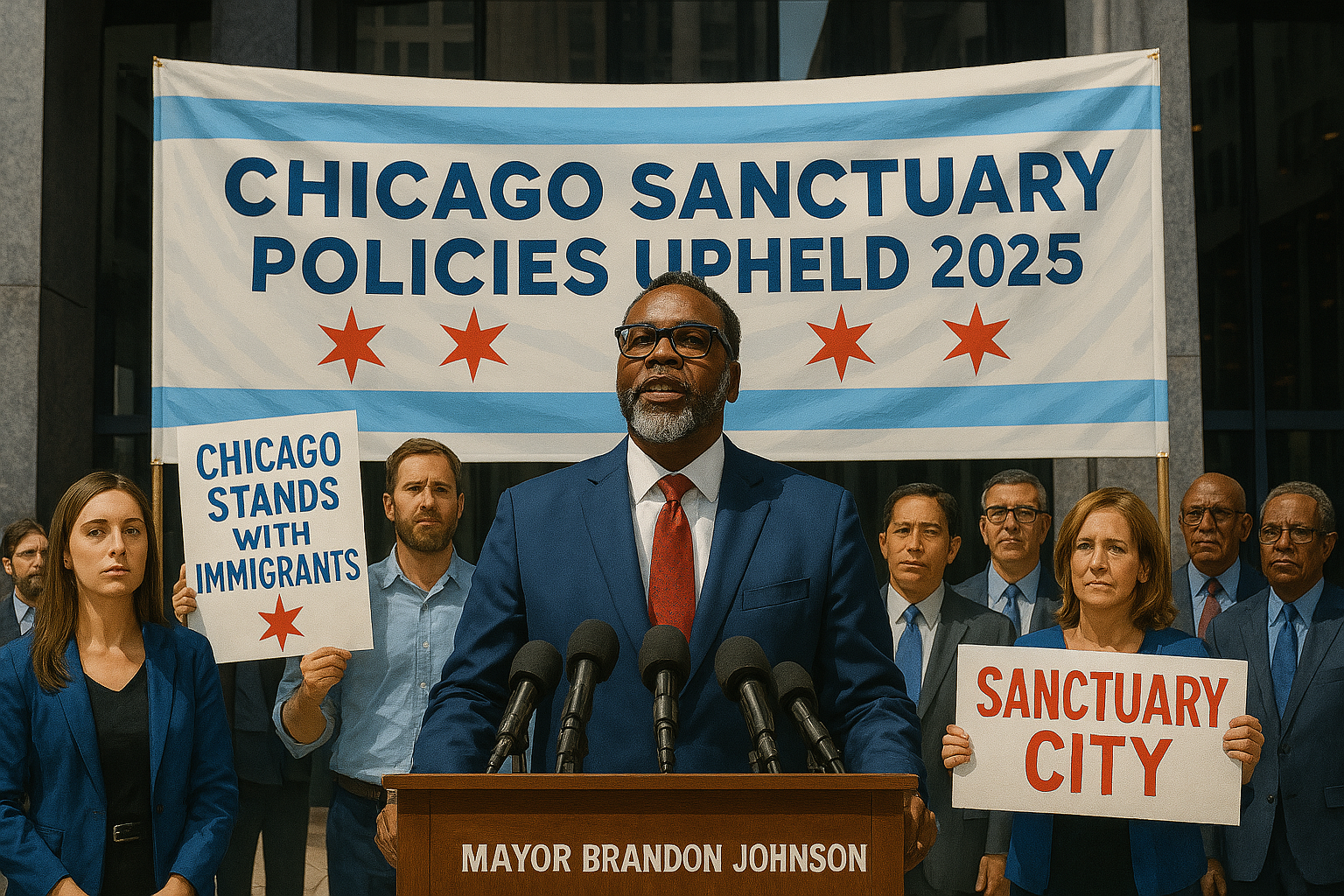Judge Hands Down Massive 62-Year Sentence in NJ Triple Shooting

A Cumberland County judge has sentenced 25-year-old Tyzir Hall to 62 years in state prison for his role in a 2021 triple shooting that left one man dead and two others seriously injured. The sentencing, handed down by Superior Court Judge Cristen P. D’Arrigo on July 19, 2025, marks the conclusion of a case that has gripped the community of Bridgeton, New Jersey, for over four years. Hall’s conviction and the lengthy sentence reflect the severity of the crime and the judge’s determination to deliver justice for the victims and their families.
The Crime: A Basement Shooting in Bridgeton
The incident occurred on February 8, 2021, in the basement of a home on South Avenue in Bridgeton. According to the Cumberland County Prosecutor’s Office, Hall, then 21, and 31-year-old Shaheed Little of Sicklerville, arrived at the residence to record music in a makeshift studio. What began as a seemingly routine session quickly turned deadly. Hall, armed with a handgun, opened fire, fatally shooting Little and wounding two others—John Beverly III and Shanetris Anderson—before fleeing the scene in Little’s vehicle.
Beverly was shot in the face and Anderson in the leg, both sustaining serious injuries. The motive for the shooting remains unclear, but prosecutors argued that Hall’s actions were premeditated and deliberate. Hall evaded capture for eight months, finally being apprehended by a U.S. Marshals task force in Philadelphia in October 2021. His arrest brought a sense of relief to the community but also set the stage for a complex legal battle that would unfold over the next few years.
The Trial: A Jury’s Verdict
In May 2025, a Cumberland County jury convicted Hall on all charges in an eight-count indictment, including first-degree murder, first-degree attempted murder, second-degree aggravated assault, and multiple weapons-related offenses. The trial, which lasted several weeks, featured testimony from survivors, forensic experts, and law enforcement officials who painstakingly pieced together the events of that fateful night. Assistant Prosecutor Holly Fanelle led the case, presenting evidence that included surveillance footage, ballistic reports, and witness statements.
One of the key pieces of evidence was the recovery of the firearm used in the shooting, which was linked to Hall through forensic analysis. Additionally, Hall’s flight from the scene and subsequent evasion of authorities were cited as indicators of his guilt. The defense, however, argued that Hall acted in self-defense, claiming that an altercation had erupted in the basement. The jury, after deliberating for two days, rejected this argument, finding Hall guilty on all counts.
The Sentencing: A Judge’s Decision
On July 19, 2025, Judge D’Arrigo delivered a sentence that ensures Hall will spend the majority of his life behind bars. The 62-year term includes 45 years for the murder of Shaheed Little, with a mandatory minimum of 85% of that sentence before parole eligibility under New Jersey’s No Early Release Act. Additionally, Hall received 17 years for the attempted murder of John Beverly III, to be served consecutively, and 8 years for the aggravated assault of Shanetris Anderson, to be served concurrently. He was also sentenced to 10 years for illegal possession of a firearm, with five years to run concurrently with the murder sentence.
In total, Hall must serve at least 52 years before he is eligible for parole, effectively making the sentence a life term given his age. Judge D’Arrigo’s decision to impose consecutive sentences for the murder and attempted murder charges underscores the gravity of Hall’s actions and the court’s commitment to holding him accountable for each victim. The judge also merged several lesser charges into the primary counts, streamlining the sentence while ensuring its severity.
The Victims: Lives Forever Changed
The shooting left a lasting impact on the victims and their families. Shaheed Little, a 31-year-old father of two, was described by loved ones as a talented musician with a bright future. His death sent shockwaves through the community, leaving his children without a father and his family grappling with an irreplaceable loss. John Beverly III, who survived being shot in the face, has undergone multiple surgeries and continues to face a long road to recovery. Shanetris Anderson, shot in the leg, has also endured significant physical and emotional trauma.
During the sentencing hearing, family members of the victims delivered emotional impact statements, pleading for justice and expressing the depth of their pain. Little’s mother tearfully recounted the moment she learned of her son’s death, while Beverly’s wife spoke of the challenges their family has faced in the aftermath of the shooting. Anderson, who was present in court, described the ongoing fear and anxiety she experiences as a result of the attack. These testimonies, while not directly influencing the sentence, provided a humanizing glimpse into the real-world consequences of Hall’s actions.
The Broader Context: Gun Violence in New Jersey
Hall’s case is part of a broader pattern of gun violence that has plagued Cumberland County and the state of New Jersey in recent years. In 2021 alone, the county saw multiple high-profile shootings, including the killing of 28-year-old Dominick Hull in Millville and the fatal shooting of 16-year-old Trah’Zir Bennett in Bridgeton. These incidents have fueled calls for stricter gun control measures and increased community policing, though progress has been slow.
New Jersey’s legal system has responded with harsh sentences for those convicted of violent crimes involving firearms. Hall’s 62-year term follows a similar 60-year sentence handed down to Darryl L. Wallace for the 2021 murder of Dominick Hull, reflecting the courts’ commitment to deterring gun violence through punitive measures. However, critics argue that such sentences do little to address the root causes of crime, including poverty, lack of education, and limited access to mental health services.
The Legal Implications: A Precedent for Future Cases
Judge D’Arrigo’s decision to impose a 62-year sentence, with consecutive terms for the murder and attempted murder charges, sets a significant precedent for how similar cases may be handled in the future. The use of consecutive sentencing in cases involving multiple victims ensures that defendants are held accountable for each act of violence, rather than receiving concurrent sentences that effectively reduce their time served. This approach aligns with New Jersey’s sentencing guidelines, which allow for consecutive terms when multiple offenses are committed in a single incident.
Legal experts note that Hall’s case may influence future sentencing decisions, particularly in Cumberland County, where violent crime rates remain high. The No Early Release Act, which mandates that defendants serve 85% of their sentence for certain violent crimes, further ensures that Hall will remain incarcerated for decades. This law, enacted in 1997, has been a cornerstone of New Jersey’s tough-on-crime policies, though it has faced criticism for contributing to prison overcrowding and limiting rehabilitation opportunities.
The Road Ahead: Appeals and Reflections
Hall’s legal team has indicated that they will appeal the conviction and sentence, citing concerns about the admissibility of certain evidence and the judge’s instructions to the jury. However, appellate courts in New Jersey have historically been reluctant to overturn jury verdicts in cases with strong forensic evidence and eyewitness testimony. If the appeal is unsuccessful, Hall will likely spend the rest of his life in prison, a fate that underscores the irreversible consequences of his actions.
For the victims’ families, the sentencing brings a measure of closure, though it cannot undo the pain and loss they have endured. The case serves as a stark reminder of the human cost of gun violence and the challenges faced by communities like Bridgeton in addressing crime. As New Jersey continues to grapple with these issues, Hall’s sentence stands as a testament to the state’s commitment to justice, even as it raises questions about the effectiveness of punitive measures in preventing future tragedies.










